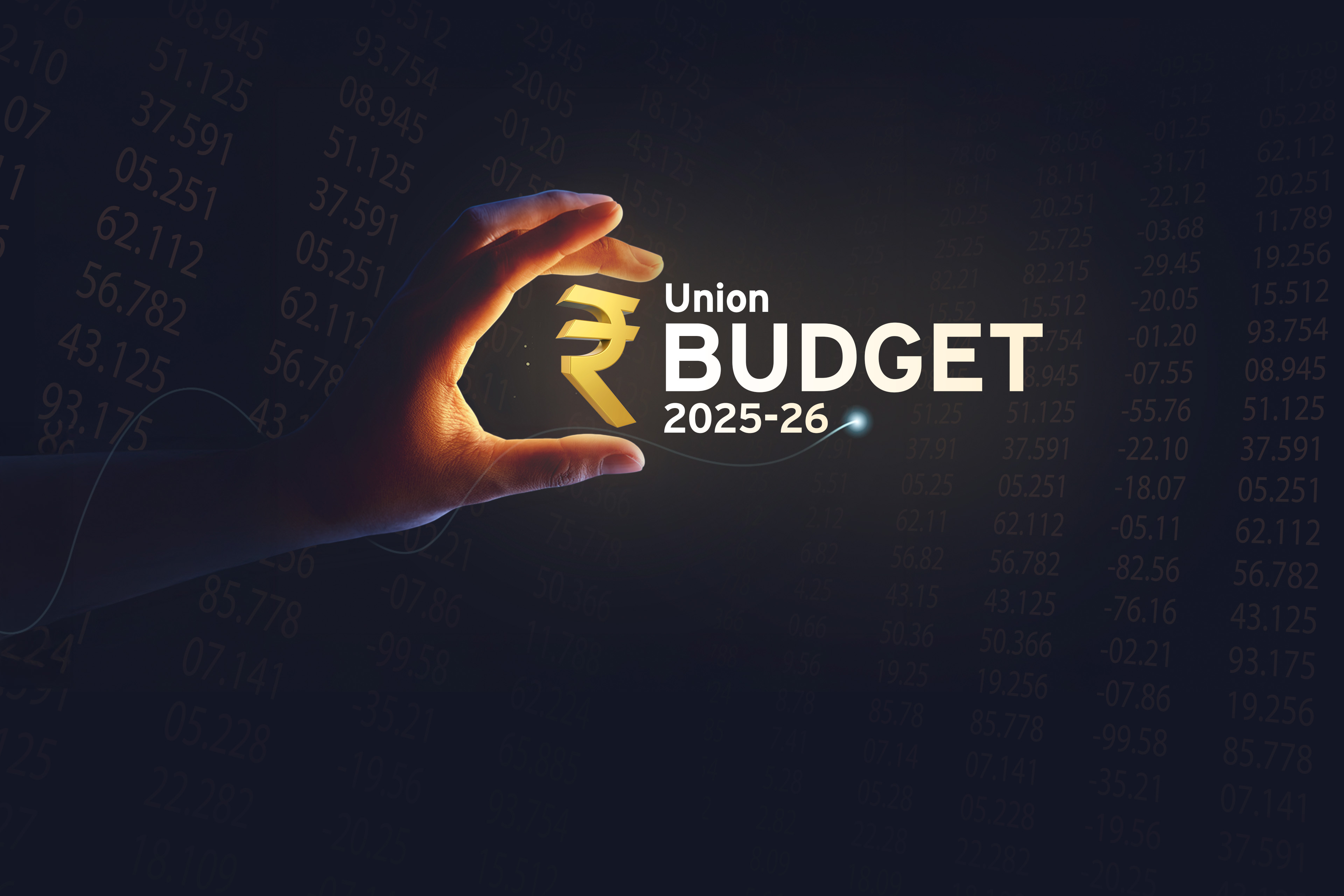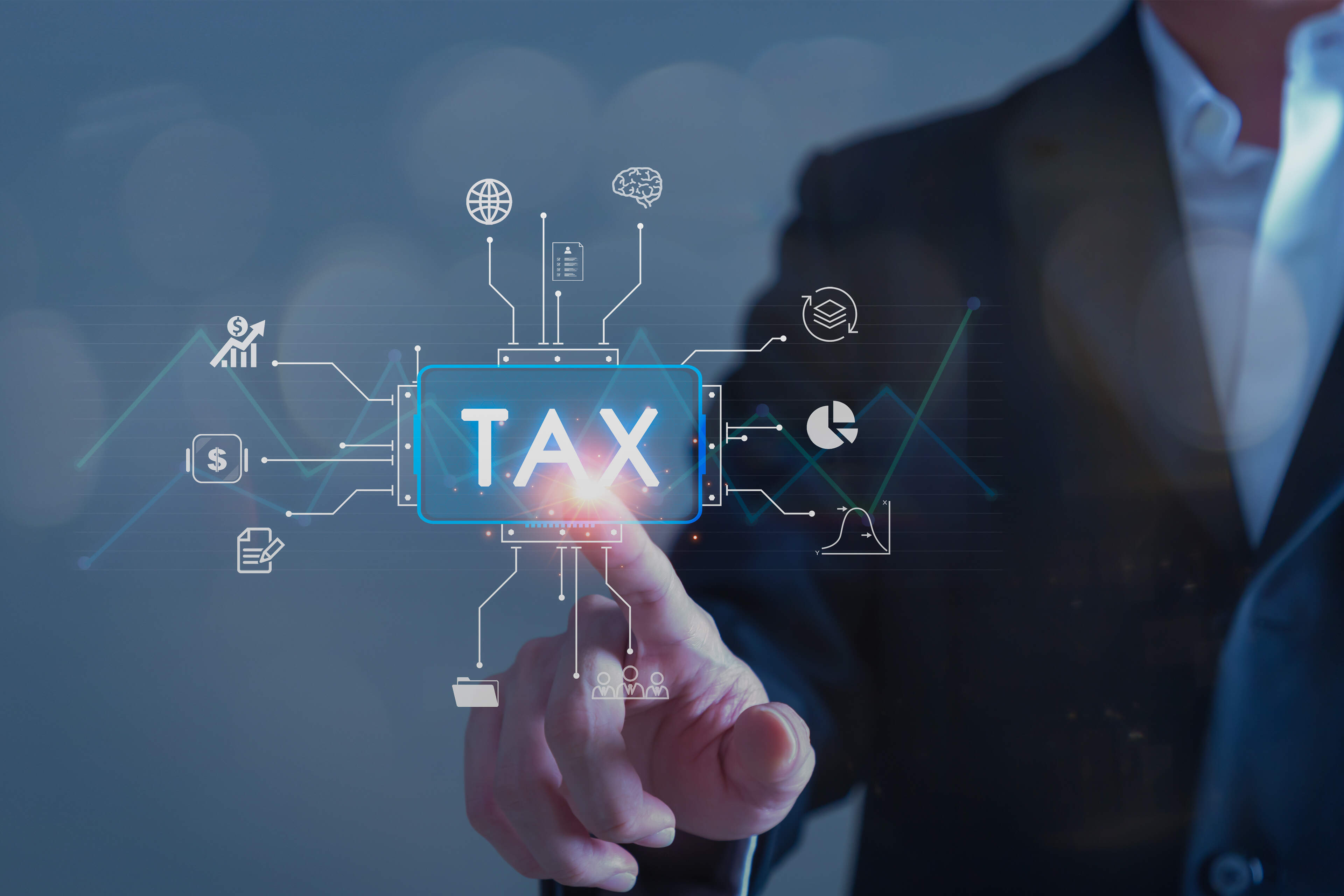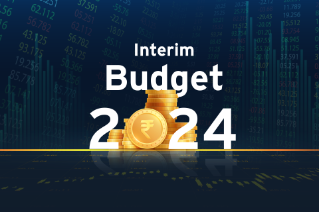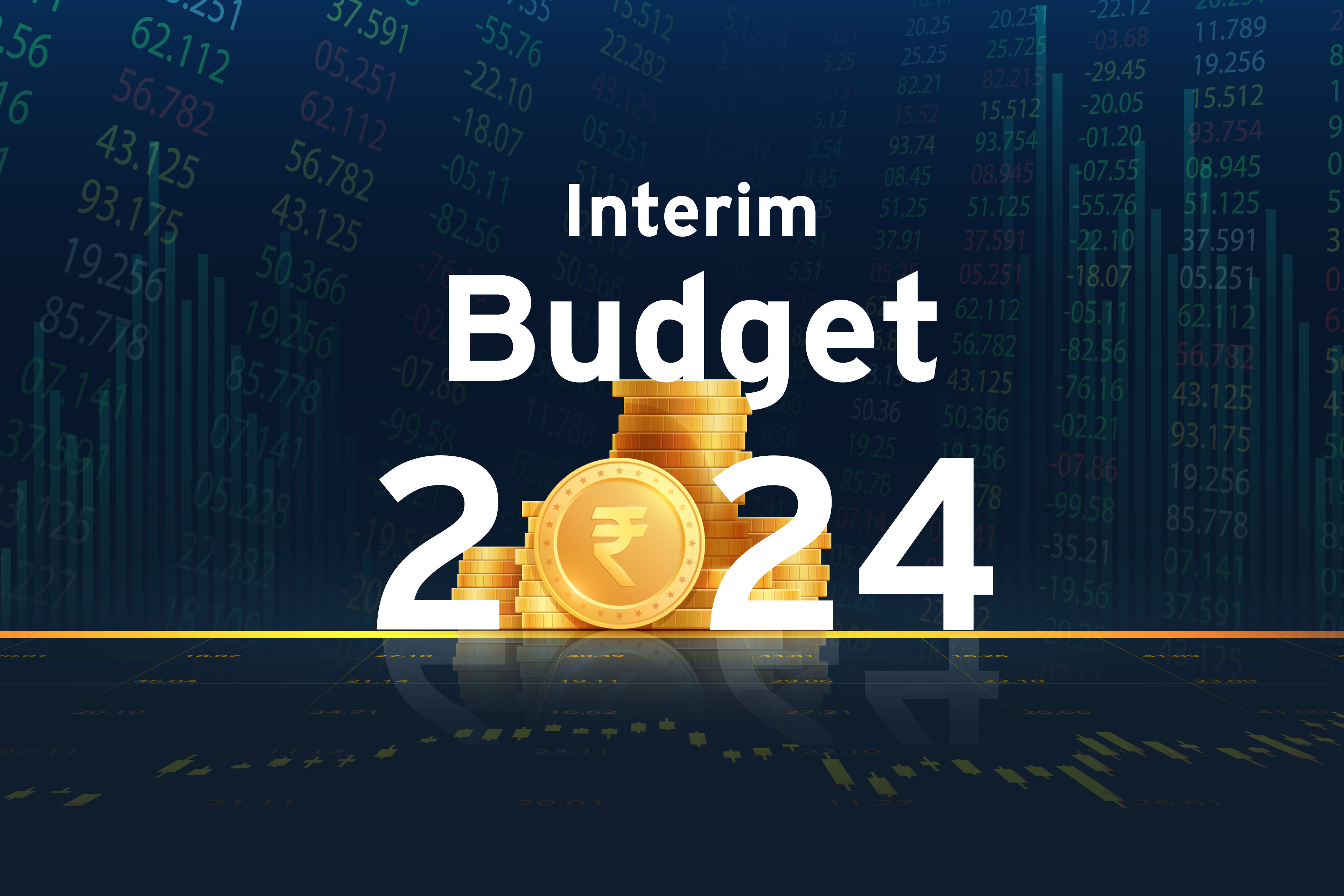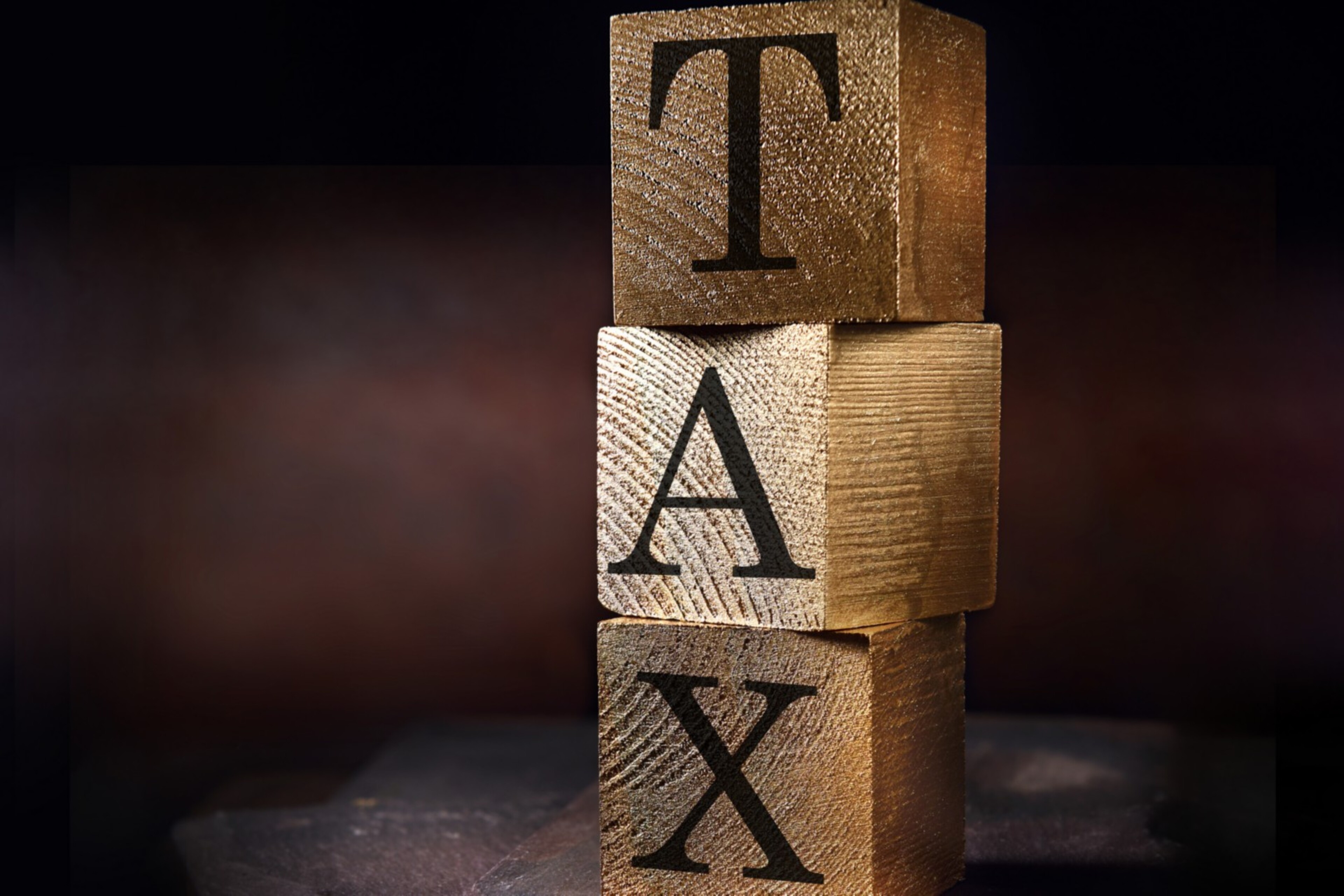EY refers to the global organization, and may refer to one or more, of the member firms of Ernst & Young Global Limited, each of which is a separate legal entity. Ernst & Young Global Limited, a UK company limited by guarantee, does not provide services to clients.
Tax Collection at Source Module of DigiTDS
Tax Collection at Source Module of DigiTDS is an automated solution which enables businesses to handle the expanded Tax Collected at Source (TCS) regime by using technology.
What Tax Collection at Source Module of DigiTDS can do for you
Tax Collected at Source provisions, under the Income-tax Act, 1961, have existed for decades but for a restricted set of transactions. With the intent to widen and deepen the tax net, using tax analytics, the Finance Act, 2020 has substantially expanded the scope of TCS provisions to include the following transactions, w.e.f. 1 October 2020:
|
Sr No |
Nature of transaction |
Monetary thresholds* |
Applicable TCS rate* |
|
|---|---|---|---|---|
|
1 |
|
|
0.1% |
|
|
2 |
Sale of overseas tour package |
No threshold |
5% |
|
|
3 |
|
Remittance of INR0.7m or more in a financial year by a remitter. |
5%[i] |
*subject to additional conditions [i]. In case of remittance of INR0.7m or more in a financial year, which is out of education loan taken from any specified financial institution, applicable TCS rate is 0.5%
This was followed by introduction of Tax Deduction at Source (TDS) on purchase of goods, resulting into interplay in applicability of TDS and TCS on transactions involving goods w.e.f 1 July 2021.
In order to ascertain applicability of TDS v/s TCS provisions, sellers are required to understand whether buyer’s turnover in previous year exceeded INR 100 mn. Further, where TCS continues to apply, sellers are required to under due diligence of buyer’s tax return filing status for previous two years, on crossing of certain monetary thresholds.
Expansion of TCS provisions and subsequent interplay between TDS and TCS provisions for transactions involving goods requires businesses to review the impact, collate declarations from buyers, undertake compliance check validations, create robust framework backed by data extraction, reconciliation capabilities to effectively comply with the new Tax Collected at Source provisions.
EY-SAP survey: Key findings
The key findings of EY-SAP survey* on preparedness of industry to adopt this new regime are as follows:
*The survey findings are a result of analysis of the feedback shared by over 110 tax heads and chief financial officers (CFOs) to a joint survey done by EY and SAP to gauge the industry’s prepared towards the applicability of the new TCS provisions on sale of goods, starting 1 October 2020. The survey was conducted in September 2020.
How EY can help?
EY provides a robust solution to assist businesses in handling the expanded TCS regime by:
- Advising on tax technical positions
- Assisting in reviewing tax processes and Standard Operating Procedures (SOPs)
- Reviewing changes in ERP data output, and
- Leveraging Tax Collection at Source Module of DigiTDS for automation of TCS life cycle.
The entire process is led by combination of Tax and Technology specialists as we assist businesses in planning, roll-out and stabilization phase.
Tax Collection at Source Module of DigiTDS, is a cloud-based, scalable and integrated solution available on Microsoft Azure (under alliance with Microsoft).
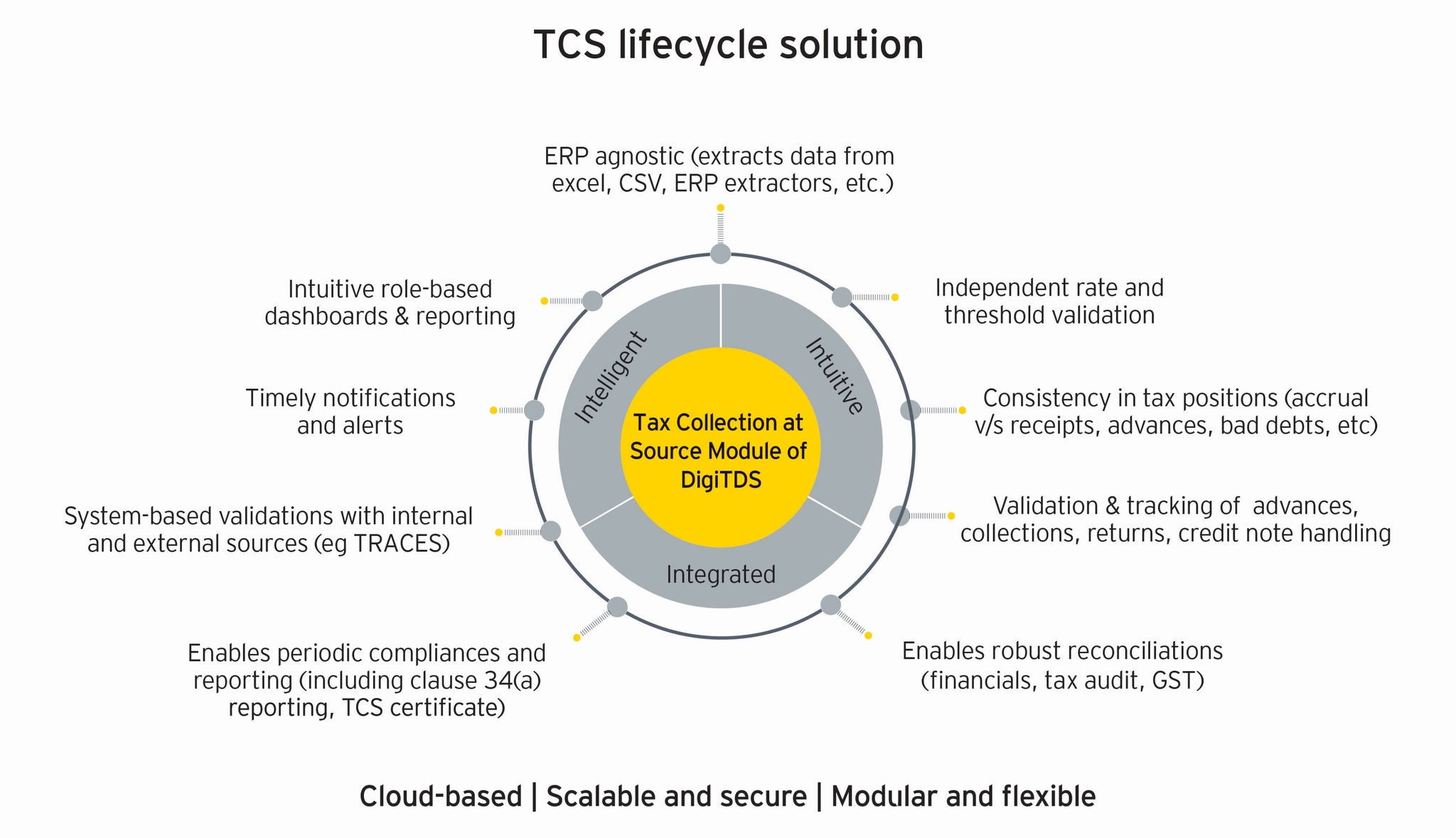
Tax Collection at Source Module of DigiTDS can assist in:
- Triggering e-mails to customers for turnover confirmation
- Undertaking customer’s tax compliance check with Government’s reporting portal
- Validation of customer master data (PAN) or Lower Collection Certificate
- Tracking Tax Collected at Source on advances as well as for subsequent adjustments
- Validation of TCS applicability
- Timely TCS compliance
- Highlighting discrepancies in relation to data in TRACES
- Aiding assessment readiness by enabling reconciliations under tax laws (the Income-tax Law and the GST)
- Enabling clients to spend more time on value-added activities
- Tax Collection at Source Module of DigiTDS empowers businesses to effectively manage their financial and reputation risks and be compliant for the Tax Collection at Source regime.
Our latest thinking
Union Budget 2026-27 highlights
Get the latest insights on the Union Budget 2026-27, including tax updates, policy changes and sector-wise impacts. Explore insights and analysis from EY India on budget reforms and growth.
20th Annual EY India Tax Workshop 2025
Register for India Tax Workshop 2025. Learn more about the tax function.
Navigating international tax compliance for Indian multinationals
Read how EY helps Indian multinationals with global tax complexity transfer pricing, BEPS 2.0, permanent establishments and technology-enabled compliance.
Understanding India’s Employment-Linked Incentive (ELI) Schemes
Explore India’s new employment-linked incentive schemes and their impact on hiring, compliance, and cost benefits for employers and employees.
Understanding minimum disclosure requirements for related party transactions
In this webcast, our panel of EY experts shares insights on the recent SEBI circular and its impact on related party transaction (RPT) disclosure requirements and industry standards.
Decoding the new Employment Linked Incentive (ELI) Schemes
In this webcast, panelists discussed the new Employment Linked Incentive (ELI) Schemes, benefits available to employers and employees and action planning for employers.
As Trump tariffs reshape global trade, India must adapt fast
Amid global trade shifts from US reciprocal tariffs, India must diversify exports, address trade imbalances, and boost manufacturing competitiveness.
Budget 2025: Insights on macro-fiscal implications
Uncover FY26's macro-economic outlook, tax reforms, and policy impacts on India's growth in our post-Budget 2025 podcast. Will GDP exceed 7%? Listen in.
Budget 2025: Insights on expectations for the manufacturing sector
Explore Union Budget 2025 with Ajit Krishnan, EY India Tax Partner, discussing manufacturing growth, tax incentives, MSME support and sustainability goals.
Budget 2025: Macroeconomic expectations and policy priorities for FY26
Explore Union Budget 2526 insights with Dr. D.K. Srivastava as he analyzes India's fiscal strategies, tax reforms, and infrastructure priorities. Tune in now!
AI and tax: Legal insights with summarization
Explore 'GenAI in Tax: The Next Wave' podcast for insights on how Generative AI is revolutionizing tax compliance and strategy with EY partners
Understanding AI – How it is changing the world of taxes
Rahul Patni & Divyesh Lapsiwala discuss GenAI's future in tax, its role in enhancing productivity, and evolving tax professions. Tune in now!
Incentive insights: Decoding state incentives in Gujarat
Learn how to decode state incentives in Gujarat with EY's podcast. Unearth new insights & strategies. Listen today!
Interim Budget 2024: impact on the macroeconomics of Indian economy
Explore EY's analysis of the Interim Budget 2024's impact on India's economy. Dive deep into macroeconomics! Listen now!
Interim Budget 2024: key policy announcements and their impact
Explore EY's Budget Insights Podcast, Ep.4 on Interim Budget 2024, for expert understanding on policy impact. Read more for key insights.
Interim Budget 2024: impact on individuals and India Inc.
Explore EY's deep dive into the Interim Budget 2024's impact on individuals and India Inc. Boost your financial literacy. Tune in now!
Interim Budget 2024: tax navigation, BEPS 2.0 and energy transition
Navigate tax, BEPS 2 and energy transition with EY's analysis on Interim Budget 2024. Enhance your understanding. Listen now!
Interim Budget 2024: balancing growth and fiscal deficit
Explore how the Interim Budget 2024 balances growth and fiscal deficit in EY's podcast. Gain unique budget insights. Tune in now!
Incentive insights: State incentives for the tourism sector
Know about state incentives boosting India's tourism sector with EY. Decode complex strategies with ease. Start listening now!
Decoding India's Q2 GDP growth of 7.6%
Decode India's Q2 GDP growth of 7.6% with EY's podcast. Gain a deeper understanding of economic trends. Tune in today!
Incentive insights: Maharashtra IT/ITES Policy and its impact on investment
In this podcast, Bhavesh Thakkar, Partner at EY India's Tax and Regulatory Services shares insights on the policy's coverage, eligibility criteria for incentives, and its unique approach toward incentivizing investments in emerging technologies.
How Budget 2023 changes are likely to impact the e-commerce operators in India
EY highlights how Budget 2023 proposals aim to deal with the taxation in e-commerce. Learn more about the changes impacting e-commerce operators.
Budget 2023 widens the scope of Tax Deducted at Source (TDS)
EY highlights how Budget 2023 widens the scope of Tax Deducted at Source (TDS). Learn more about TDS rates.
EY highlights how Budget 2023 attempts to make the new concessional tax regime more attractive. Learn more about the new and old tax regimes.
How EY can help
-
Transform your tax function with EY India AI Tax Hubenterprise-grade Agentic AI for Tax to enable faster research, automated compliance and smarter litigation management.
Read more -
Transform export-import operations with EY Global Trade Automation software, AI powered automation for customs and foreign trade policy compliances, duty savings, incentive optimization, logistics visibility and faster global trade decisions.
Read more -
Transform your tax functions with EY’s India Tax Platform - an AI-powered, cloud-based digital tax solution offering automation, insights, and unified dashboards.
Read more -
Our Automated Corporate Tax Compliance Solution transforms and simplifies the entire spectrum of corporate tax processes and compliance for growth.
Read more -
Be part of a secure and fully automated GST Invoice Registration Portal (IRP) for a swift, simple, and secure e-invoice authentication.
Read more -
Tax and Finance Operate services at EY help transform the tax and finance operations, manage regulatory risk, adopt the latest technology & ensure compliance.
Read more -
Agile Tax is a complete tax approach to address client's business transformation, enabled by SAP, provided by EY in India.
Read more -
Tax Data Analytics - Our big data analytics in tax services help you in new era of tax planning and tax compliance. Learn more about business data analytics in tax.
Read more -
DigiRev™ is an automated transfer pricing solution that streamlines documentation review to support intra-group services and royalty transactions effectively.
Read more -
EY Digital Tax Advisor is an online service helping mid-market firms & new entrants access expert, on-call advisory on Indian tax & exchange control laws.
Read more -
EY Tax Technology and Transformation team helps manage digital tax data, ensure regulatory compliance, and drive decisions with intelligent analytics.
Read more -
Robotic Process Automation (RPA) Services boost efficiency, reduce costs and improve accuracy in tax processes, streamlining business operations and drives growth.
Read more
Meet our Tax Collection at Source Module of DigiTDS team
Direct to your inbox
Stay up to date with our Editor's picks newsletter.















